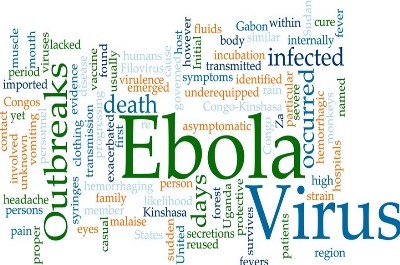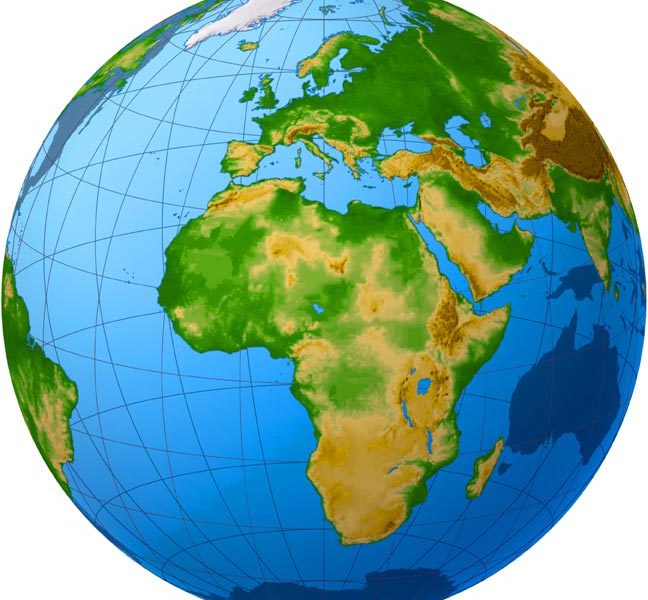UN press briefing in Geneva — excerpts on Ebola
HIGHLIGHTS OF REGULAR PRESS BRIEFING BY THE INFORMATION SERVICE
Corinne Momal-Vanian, Director of the United Nations Information Service in Geneva, chaired the briefing, which was attended by the Spokespersons for the United Nations Children’s Fund, the International Organization for Migration, the Office for the Coordination of Humanitarian Affairs, the World Health Organization, the Economic Commission for Europe, the United Nations Conference on Trade and Development, the Human Rights Council and the United Nations Refugee Agency.
Ebola
Jens Laerke, for the Office for the Coordination of Humanitarian Affairs (OCHA), said that a Member States briefing on the Ebola outbreak and response in West Africa would take place on 16 September 2014, from 11:00 to 12:30 in Room XIX at the Palais des Nations. Briefers would include Valerie Amos, Under-Secretary-General for Humanitarian Affairs and Emergency Relief Coordinator, David Nabarro, UN System Senior Coordinator for Ebola, Bruce Aylward, Assistant Director-General for Polio, Emergencies and Country Collaboration, World Health Organisation (WHO), representatives from Médecins Sans Frontières (MSF) and the International Federation of Red Cross and Red Crescent Societies (IFRC).
A press conference with USG Amos, Dr. Nabarro and a representative of the WHO would follow immediately afterwards, at around 12:35 in Press Room III.
Christophe Boulierac, for the United Nations Children’s Fund (UNICEF), stated that as efforts to halt the spread of the Ebola virus were intensifying, UNICEF warned of its far-reaching impact on children. In Liberia, Ebola had severely disrupted health services for children, caused schools to close and left thousands of children without a parent. Children were dying from measles and other vaccine preventable diseases and pregnant women had few places to deliver their babies safely.
Over the previous decade, Liberia had moved from a country mired in devastating conflict to a country celebrating the highest rate of decline in child mortality in Africa. Now, Ebola was threatening to wipe out all those hard-earned gains for children and for Liberia.
Mr. Boulierac said that almost all health facilities were closed or only partially functional. Children were not receiving protective vaccinations or being treated for the common childhood illnesses that accounted for the majority of deaths in children under 5 years of age, including malaria, pneumonia, diarrhoea, and severe acute malnutrition.
To date UNICEF had flown in, with support from the World Bank, nearly 248 metric tonnes of supplies which included personal protection equipment, hygiene kits, chlorine (the biggest ever delivery of chlorine in UNICEF’s history), plastic sheeting, oral rehydration salts for the treatment of diarrhoea and other emergency health supplies.
In the previous week, UNICEF, together with Liberian partners, had distributed 9,000 hygiene kits to 45,000 people in West Point, an impoverished, densely populated community in Monrovia that had been heavily impacted by the Ebola outbreak, and that was also prone to high rates of acute watery diarrheal diseases. Each kit included two-10 litre buckets, water purification tablets and soap.
Mr. Boulierac added that a vital element to the control of that highly infectious disease was prevention. UNICEF provided water and sanitation to treatment centres. UNICEF was also training up psycho-social workers and was working to restore essential maternal and child health services, including for children suffering from malnutrition.
Sarah Crowe, also for UNICEF, on the phone from Liberia, said that there was a wide sense of a whole country being taken over by the virus. The country, which had recently recovered from the civil war, was now being devastated by the Ebola epidemics. Medical professionals on the ground had to look into unconventional ways to deal with the crisis. Chlorine deliveries alone were a monumental logistical undertaking.
The effect of the epidemics on children was of great concern for UNICEF. Children seeing their family members falling sick and being taken away, were under significant distress, and there was a deep stigma against children who had been affected by the virus. UNICEF was trying to provide care and attention for such children, without exposing health workers to threat. An innovative approach included having Ebola survivors deal with them during the incubation period.
Ms. Crowe said that the whole epidemics was having devastating effects on children and families. It was a heavy rainy season, with more cases of malaria, pneumonia and diarrhoea, and if children were not getting attention, their situation would be even more difficult. Schools were closed, but children were still interacting with one another outdoors even though they were largely aware what should and should not be done. Teachers in the community had also become informal educators of the population about the threats and risks of Ebola.
Liberians themselves were finding new ways to deal with the situation, as there were not enough partners of the ground. The situation was beyond the scope of any single agency or country. Many Liberians felt abandoned, as their country was facing the highest number of cases; the urban setting made it only harder. UNICEF was working with health workers, with WHO and other organizations, training those people and trainers, to use any means they had at their disposal to protect themselves, such as covering themselves with plastic bags, when dealing with their loved ones who were sick. The fragile health system was under tremendous strain, with very many unknowns.
On whether messages were filtering through to regular people about burials, Ms. Crowe responded that it was a culture where people were celebrated in death, which made it very unnatural for local people not to have contact with bodies of the deceased. The message on non-touching was nonetheless getting through as most people understood that corpses could be deeply infectious. Funeral services across the country were closed.
Asked about children orphaned by Ebola, Ms. Crowe said that in Liberia there were about 2,000 children who had been left without parents. Survivors were increasingly taking care of children who had been exposed to Ebola.
On whether any difference was seen on the ground, given that a number of countries and organizations were offering help, Ms. Crowe said that there still needed to be a massive scaling up of the support. There were not enough beds available in Liberia, and other equipment was simply not available. Protocol also did not exist on how families should take care of Ebola patients at home. The message went through, but there were just not enough medical professionals on the ground. The epidemics was of historic proportions.
Ms. Crowe did not have data on the number of infected children across the region. Entire families were often taken away by the virus, and children were normally treated together with their family members. Women and caregivers were far more affected.
In terms of innovative ways that UNICEF was applying, Ms. Crowe said UNICEF was explaining to people to wash their hands in chlorine and cover their clothes with plastic bags if nothing else was available. Plastic sheeting, gloves and rehydration salts were also being more widely used.
Stay with Sierra Express Media, for your trusted place in news!
© 2014, https:. All rights reserved.






